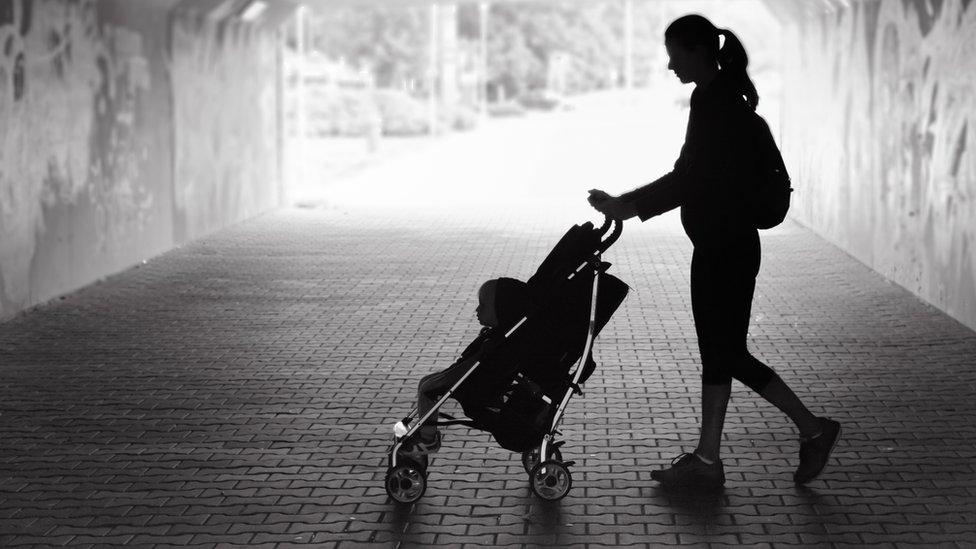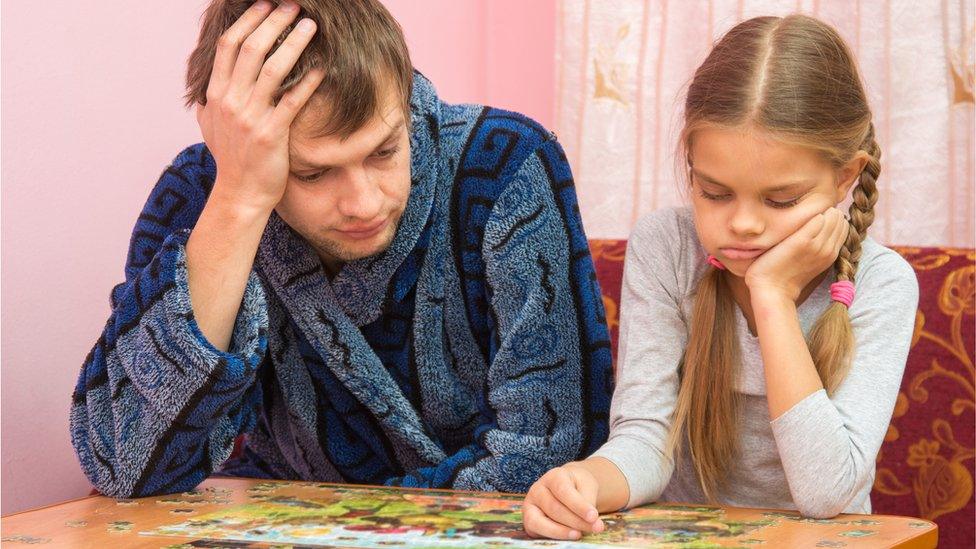'Faster benefits needed' to stop more child poverty
- Published

The Scottish government's new family income supplement is to be rolled out in 2022
A classroom of children a day could fall into poverty unless benefits changes are brought in sooner, an independent think thank has claimed.
IPPR Scotland said if family income supplement measures were not introduced quickly, 50,000 more youngsters would be affected by 2023-24.
That is the equivalent of 25 children a day entering relative poverty.
The Scottish government has already said its new family income supplement is to be rolled out in 2022.
But IPPR Scotland said action should be taken before the next Holyrood election in May 2021.
It also cited "UK benefits cuts" leading to falling living standards.
Living standards
It comes after the Scottish government's advisers at the Poverty and Inequality Commission, external urged ministers to introduce the family income supplement initiative sooner.
IPPR Scotland director Russell Gunson said: "It's not right that almost a quarter of children in Scotland are locked into poverty. And without action that figure is due to rise dramatically.
"Much of the increases in poverty in Scotland come from UK benefit cuts and a UK economy that has failed to maintain, let alone improve, living standards.
"But here in Scotland, there's more we can do. Every day, every week and every month of delay matters."

He added: "The Scottish government has promised to introduce an income supplement as part of wider plans to help to reduce child poverty.
"This is a golden opportunity to help tens of thousands of children escape poverty in Scotland.
"But given increasing child poverty rates, we want to see urgent action to make a start earlier than planned.
"We believe the Scottish government can, and should, bring forward plans for an income supplement before the end of this parliament, and to consider an interim payment before this."
The Poverty and Inequality Commission has said the Scottish government would need to invest "considerably more" on tackling child poverty if it is to meet legally binding targets it has set.
Progress report
Holyrood has already committed to cutting relative child poverty to less than 10% by 2030-31, while reducing absolute child poverty to below 5%.
But figures showed almost a quarter (23%) of children were living in relative poverty in 2016-17, with this forecast to increase to 27% by 2023-24.
A Scottish government spokeswoman said: "Our first Tackling Child Poverty Delivery Plan, published last year, outlines the actions to be taken between 2018-22 - including working towards the development of a new income supplement.
"We have been doing just that and have involved stakeholders, including IPPR, in that work. A one-year progress report will be given to parliament in June."
The UK government said it was tackling the issue, with absolute poverty in Scotland "now lower than in 2010 and unemployment at a record low".
A spokesman for the Department of Work and Pensions said: "But we recognise some families need more support and that's why we continue to spend £95bn a year on working-age benefits to help ensure every child has the best start in life.
"Scotland has significant welfare powers to make further changes and can top-up existing benefits, pay discretionary payments and create entirely new benefits altogether."